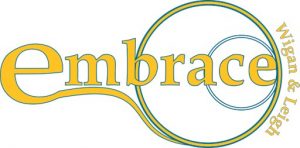SEND Drop-in Clinic
We regularly hold drop-in sessions for parents/carers who may need to discuss matters with Mrs Lowe, our SENCO.
Drop-in session will be held every Monday between 3.00 – 5.00pm.
Feel free to call in, but we encourage parents/carers to book a time slot by calling 01942 885500 to make an appointment.
Aims
- Provide every pupil with access to a broad, balanced and ambitious education. This is in line with the SEN Code of Practice.
- To ensure that teachers have the information, knowledge and skills that they need to support pupils with SEND needs effectively in lessons.
- The curriculum is knowledge rich, vocabulary rich and is carefully and coherently planned.
- Quality first teaching to deliver the ambitious curriculum intent.
- Promote independence, equality and consideration and respect for others.
- Ensure that we celebrate success and pupils with SEND achieve exceptionally well.
- Create an ‘open-door’ ethos for parents/carers to create strong communication and relationships.
- To ensure that all pupils are prepared to succeed in further education.
Objectives
- The curriculum has been carefully designed to be ambitious, to meet the breadth and depth of the National Curriculum and carefully sequenced to ensure all pupils are secure in the essential Knowledge for Progression.
- Atherton High School is committed to the development of high-quality teaching across the whole school through regular high-quality CPD. This creates adaptive and responsive teaching, putting SEND pupils at the heart of our ambition.
- To ensure that referral information is well evidenced and that the needs of pupils are identified as early as possible, with regular monitoring of progress.
- Make appropriate provisions within school, promotes high educational standards and the fulfilment of potential enabling pupils to achieve their best.
- The SEND team will support needs and promote a learning environment that allows pupils to make a successful transition into adulthood, employment and further or higher education and training.
- Parents, carers and young people are involved in discussions and decisions about their individual support.
- Collaborate with outside agencies when extra help is needed such as Educational Psychology, CAMHS or Speech and Language services.
What specialist services and expertise are available at, or accessed by, the school?
- Educational Psychology.
- Speech and language therapy.
- TESS.
- School Nurse.
- Hearing Services.
- Inclusion Support Service (advisory teachers).
- Outreach Service.
- Occupational therapy.
- Physiotherapy.
- Engagement Centre.
- Virtual Schools.
- SEND team from Local Authority.
- CAMHS (Child and Adolescent Mental Health Service).
- Children’s Social Care.
- Paediatrician.
What training and experience have the staff supporting children and young people with special educational needs and/or disabilities had, or are having?
- The inclusion team have received extensive training in the following areas:
- High-quality first teaching school CPD.
- Hearing impairment.
- Communication and Interaction.
- Talking Partners.
- Maths Recovery.
- Sounds Write.
- Behaviour management.
- SEMH.
- Safeguarding.
- Safer people handling.
- Promoting better literacy.
- Autism.
- ADHD.
- Working memory.
- Maximising the impact of TA support.
- In addition, all staff delivering intervention programmes have received extensive training in Literacy Catch-up, Numeracy Catch-up, Dyslexia support and Speech and Language.
What should I do if I think my child/young person may have special educational needs?
Speak to the school in the first instance and the SENCo will be able to advise you on the appropriate next steps. These may involve assessments being carried out within the school, or a referral being made to the appropriate service. Such referrals may be done by school or, dependent upon the nature of the concern, by a GP.
SEND Policies
A copy of the SEND Policy, SEND Information Report and the Accessibility Policy can be found here:
Special Educational Needs and Disability Information and Advice Support Service (SENDIASS)
SENDIASS offer free, impartial information, advice and support to families of children and young people 0-25yrs who have Special Educational Needs or Disabilities (SEND).
This includes:
- Providing information, advice and support
- Signposting to SEND services which are available in Wigan
- Links to local parent support groups and forums
- Support and advocacy within meetings
- Support in resolving disagreements, mediation and tribunals
- Explaining the Educational, Health and Care Plan (EHCP) process
Helpline – 01942 233323 (Monday – Friday 9am-5pm, out of hours please leave a voicemail)
Email – info@wigansendiass.co.uk
For more Information Advice and Support – Click the link here.
Embrace Wigan and Leigh
If you have a disability Embrace can support you and your family with:
- Going to meetings or appointments
- Getting your opinions heard
- Finding out who to call for disability help
- Getting the right information
- Finding inclusive activities and events
- Understanding disability allowance forms
- Your personal support
- Advice on education options
- If you’re feeling lonely and want to meet others
- General day to day life!
Contact
“ Information about the needs of pupils with SEND is communicated with staff regularly. This enables them to make relevant adaptations to their teaching. As a result, most pupils with SEND access the same curriculum as their peers and achieve well.”
Ofsted 2024





